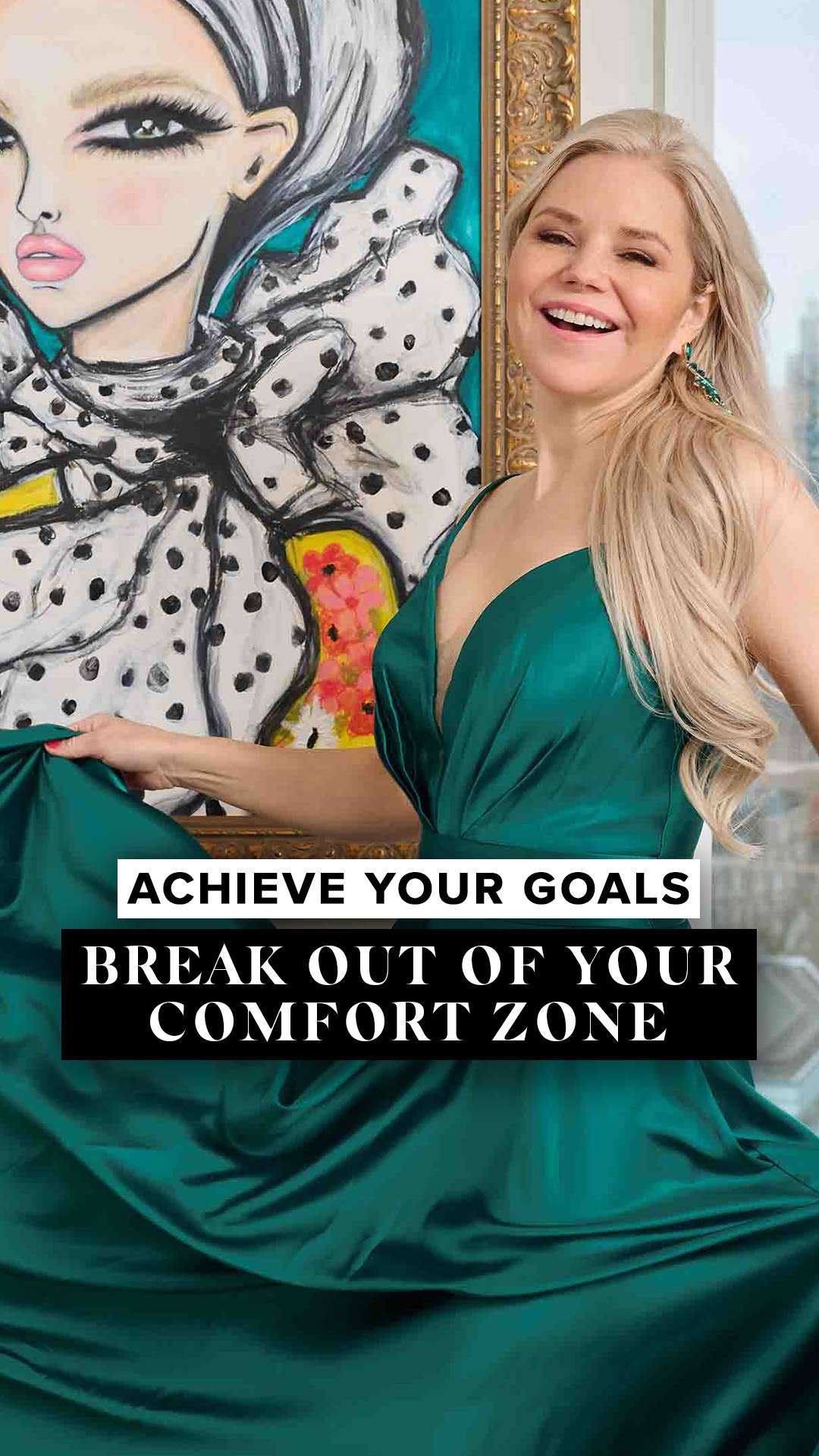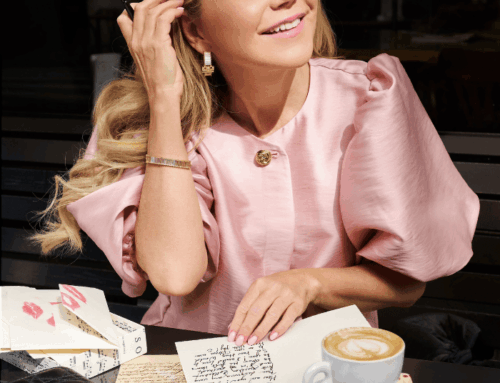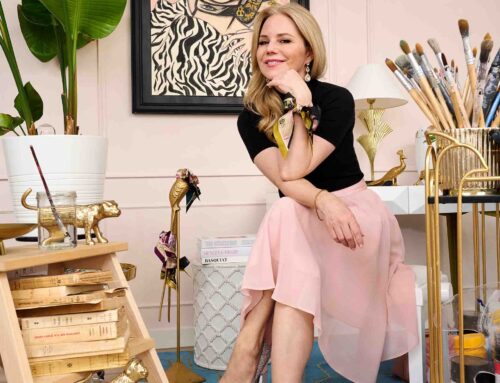Yesterday, as I was walking outside, something caught my eye—a small sprout breaking through the top of the soil. It was a simple, natural occurrence, but it made me pause and reflect. Think about it: how challenging must it be for that sprout to muster the strength to leave the comforting soil behind? The earth is like a warm, protective cocoon, shielding it from the harsh elements of the world. Yet, despite the challenges—rain, wind, fluctuating temperatures, and even threats from insects and birds—many sprouts not only survive but thrive, blossoming into beautiful flowers or towering trees.
This small sprout got me thinking about a fundamental aspect of our lives: breaking out of our comfort zones.
Our comfort zone is much like the soil that nurtures a seed. It’s a place of safety, shielding us from the harsh realities of life—whether that’s dealing with difficult jobs, paying bills, managing toxic relationships, or even battling anxiety and depression. But just like a seed, if we never break out of this comfort zone, we risk experiencing the death of who we are meant to become. Our dreams, goals, and everything we aspire to achieve will wither away if we don’t take the chance to face the world, much like that tiny sprout.
So, let’s talk about how you can break out of your comfort zone and grow into the person you’re meant to be.
Practice Detachment
Let me ask you this: Who is your favorite actor or actress? Perhaps it’s a film star, a Broadway performer, or someone less known but equally talented. What draws you to them? Likely, it’s their ability to detach from reality and fully immerse themselves in the world of their character.
This concept of detachment has been instrumental for me in breaking out of my comfort zone. I’m not a trained actress, but I’ve found that seeing myself as a character in a play—a sort of avatar—allows me to do whatever I set my mind to. By detaching myself from negative thoughts, I can distance myself from fears that typically hold us back:
- Fear of failure
- Fear of the unknown
- Fear of rejection
- Fear of change
- Fear of judgment
At the core of all these obstacles is fear. It’s fear that prevents us from stepping out of our comfort zones and achieving our goals. This fear is often tied to a future-oriented mindset, where we worry about what could go wrong. However, by practicing detachment, we can focus on the present moment and take the steps necessary to move forward.
For me, pretending to be a character in a play helps me live as the person I want to become. The more I embody this future self, the more likely it is that I’ll realize my goals because I’m cultivating the right habits and mindset now.
If this approach doesn’t resonate with you, there are other ways to practice detachment, such as:
- Mindfulness and meditation
- Visualization techniques
- Journaling, which allows you to see your thoughts more objectively
Slow and Steady Wins the Race
Fear isn’t the only thing that keeps us rooted in our comfort zones. Often, it’s the enormity of our goals that paralyzes us. Want to learn a new language? It feels like you’ll need to study thousands of words to become fluent. Want to lose weight? The idea of eating healthy and exercising consistently for months or even years can feel overwhelming. Want to start a business? The thought of hard work, research, and building a customer base from scratch can be daunting.
With this mindset, it’s no wonder we often choose to stay put, daydreaming but never taking action.
But here’s the truth: while your goals may be big, showing up doesn’t have to be.
You don’t need to learn hundreds of new words in one go to become fluent. You don’t need to spend hours at the gym every day. And you don’t have to learn everything about starting a business overnight. What matters is that you show up and invest a little bit of time, even if it’s just a few times a week. That’s how you’ll win the race of life—by moving slowly and steadily.
If you don’t move past the starting line—your comfort zone—you’ll never achieve your goals. But if you push yourself too fast, you risk burnout and eventually giving up, landing right back at square one. That’s why pacing yourself is so crucial. Just like runners pace themselves to win races, we must do the same when breaking out of our comfort zones.
Achieving your goals is all about taking one step at a time, as often as you can, and enjoying the journey. Show up, invest a little time, and watch as the compounding effects of your efforts unfold over weeks, months, and years. You’ll be amazed at how much progress you make.
Create Positive Reinforcement
One of the hardest aspects of leaving our comfort zones and building new habits is that progress often feels slow and invisible. For instance, when you start losing weight, you may not see significant changes for months. The same goes for any dream or goal you’re working towards. Progress is happening, but it’s gradual and can be hard to notice.
This lack of immediate results can make us feel unmotivated and discouraged, driving us back to our comfort zones.
While it’s true that the journey itself is a reward, I understand that not everyone will see it this way. That’s why I suggest creating your own reward system. Every time you step out of your comfort zone and make an effort toward your goals, reward yourself. This could be something tangible, like a purchase, or an experience, like a spa day. It could also be something small, like a piece of dessert or engaging in a favorite hobby.
Creating positive reinforcement through a reward system helps reinforce the behaviors and habits that lead to success. This makes it more likely that you’ll stay out of your comfort zone and continue practicing those productive habits—because there’s a reward waiting for you at the end. And that makes the journey even sweeter.
Final Thoughts
For many of us, breaking out of our comfort zone seems harder than it really is. We come up with countless reasons and excuses to stay put. But at the end of the day, even with all the advice in the world, sometimes we just need to be more like seeds planted in the soil. Don’t overthink it. Don’t analyze every detail. Just do it.
Remember, growth begins at the end of your comfort zone.
I hope you found this post helpful. If you did, I’d love for you to leave a comment below, share your thoughts, or ask any questions you might have. Don’t forget to follow me on Instagram @wendybuiter for more insights and inspiration. Thank you for reading, and I look forward to seeing you in the next post!
4o








Leave A Comment
You must be logged in to post a comment.